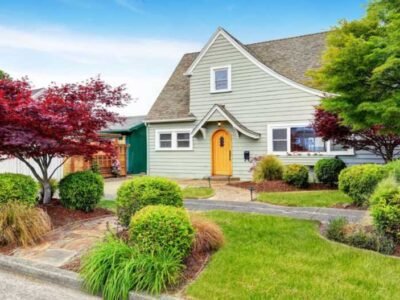By cultivating and raising several varieties of plants, anyone can engage in the practice of gardening. Gardening can cover all styles, from container gardens, to back gardens with lawns and foundation planting, to multiple plantings including a variety of trees, shrubs, and herbs, and all the way to fruit orchards.
Gardening is a popular hobby among older adults and is considered an enjoyable and therapeutic activity. But even as exciting as it is, the kneeling and bending associated with the activity can be quite physically challenging.
Seasons Retirement engages older adults with enjoyable events and activities that benefit their physical, mental, and emotional development.
Benefits of Gardening
Gardening has both physical and emotional benefits. And there are studies that show the advantages of observing and interacting with green spaces.
The activity is also inexpensive and, as such, easy to keep up with as one grows older.
Here are some of the benefits derived from gardening for seniors:
1. Mood booster
Gardens do not only serve as places to grow plants; they are also spaces to relax, focus, and connect with nature and other people. So, it’s fair to say gardening makes one feel more at peace.
Focusing on the task at hand while working in the field reduces the likelihood of having negative thoughts and feelings. Fresh air and sunlight are also excellent for good health. Sunlight causes the body to produce vitamin D and increases serotonin levels in the brain.
Serotonin is a chemical agent that serves to allow signals to be sent between the brain’s nerve cells and the rest of the body. It plays a key role in body functions such as mood and sleep.
A form of therapy known as horticultural therapy, involving the use of plants for the purpose of human healing and rehabilitation, has been known to reduce stress hormone levels.
2. Improved immune system
Gardening involves getting your hands dirty, but studies have shown that a little dirt can benefit you.
Garden soil contains a bacterium known as Mycobacterium vaccae, which can alleviate symptoms of asthma, allergies, psoriasis, and depression. Oral exposure to products of this bacteria has resulted in positive effects in treating tuberculosis.
3. Exercise
Gardening is a less intense way for your older loved ones to engage in exercise. Although it may not be as vigorous as swimming or cycling, it is a hearty workout that can slow down the aging process. It requires physical activities like digging, uprooting plants, moving soil and compost, and watering plants.
Working on fields exerts all the major muscle groups – legs, buttocks, arms, shoulders, neck, back, and abdomen. Digging and lifting compost bags provide strength training, yet there is minimal stress on the body, unlike jogging and aerobics.
Also, gardening involves a lot of stretching exercises, such as reaching for branches and weeds or extending a rake. The activity provides benefits such as mental alertness, improved mobility, and decreased risk of coronary heart disease.
4. Reduces the risk of dementia
According to a study, gardening can reduce the risk of dementia by up to 36%. It is an activity that stimulates the brain and encourages sensory stimulation.
Seniors gardening in therapeutic gardens allow sensory stimulation by aromatherapy, visual simulation, or indulging in the soft music of nature.
By spending some time outside when working in the fields, older people can maintain their motor skills, endurance, and strength.
5. Reduces stress and anxiety
The relaxing and slow-paced nature of gardening makes it a therapeutic and fun activity for older adults. Exercise is also known to reduce stress and tension significantly. It lowers cortisol levels in the body.
Cortisol, also known as the stress hormone, helps sustain body functions. When the cortisol levels are too high in the body, the blood pressure and glucose levels fluctuate, causing fatigue, mood swings, and muscle weakness.
Tips for an excellent gardening experience for older adults
Here are some tips to make gardening for seniors easier:
- Practice in the morning and evenings when the sun is down, and the weather is cool.
- Use lightweight tools that are easier to handle for your senior gardening.
- Take extra care when using power tools. You may use manual shears instead to avoid accidents.
- Raise beds to reduce bending and kneeling in people with physical challenges. Also, raised beds improve drainage and make harvesting easier.
- Make sure a tap is nearby or install an irrigation system to cut down on hand watering and allow for easy watering.
- Find and use adaptive and senior gardening tools such as kneeling benches, ergonomic tools, and garden carts that allow for both storage and sitting.
- Modify existing tools with foam, tape, and plastic tubing to make them thicker for better grip.
- Paint tools in neon or bright colours for easy identification when dropped or misplaced.
- Don’t stay too long on an activity to prevent straining a set of muscle groups.
- Provide shaded areas for working in the summer months. Add comfortable chairs and benches to create resting spaces between gardening sections, or a quaint resting spot to admire your handiwork.
- For easier gardening for seniors, reassess the yard or large garden spaces with the goal of creating smaller rooms. Add paved areas and paths for easy accessibility and replace the excess lawn with mulched beds and attractive ground covers.
- Avoid heavy lifting, digging, or other strenuous activities; hire labour or ask relatives to help with them.
- Ensure the paths and walkways are flat and non-slip. They should be wide enough to allow for walker and wheelchair access.
- Install fencing to keep out pests. If your older relative has memory challenges, ensure you secure the gates and fences with latches and locks.
- Wear protective clothing – sturdy, closed-toe shoes, lightweight and comfortable clothes, a wide-brimmed hat, sunglasses, and garden gloves.
- Avoid alcohol and drink plenty of water or juice during and after outdoor activities. Older adults are especially susceptible to dehydration.
Endnote
If practiced correctly, gardening for seniors is an enjoyable and healthy activity that can easily be adapted into your older loved one’s daily routine.
















Comments